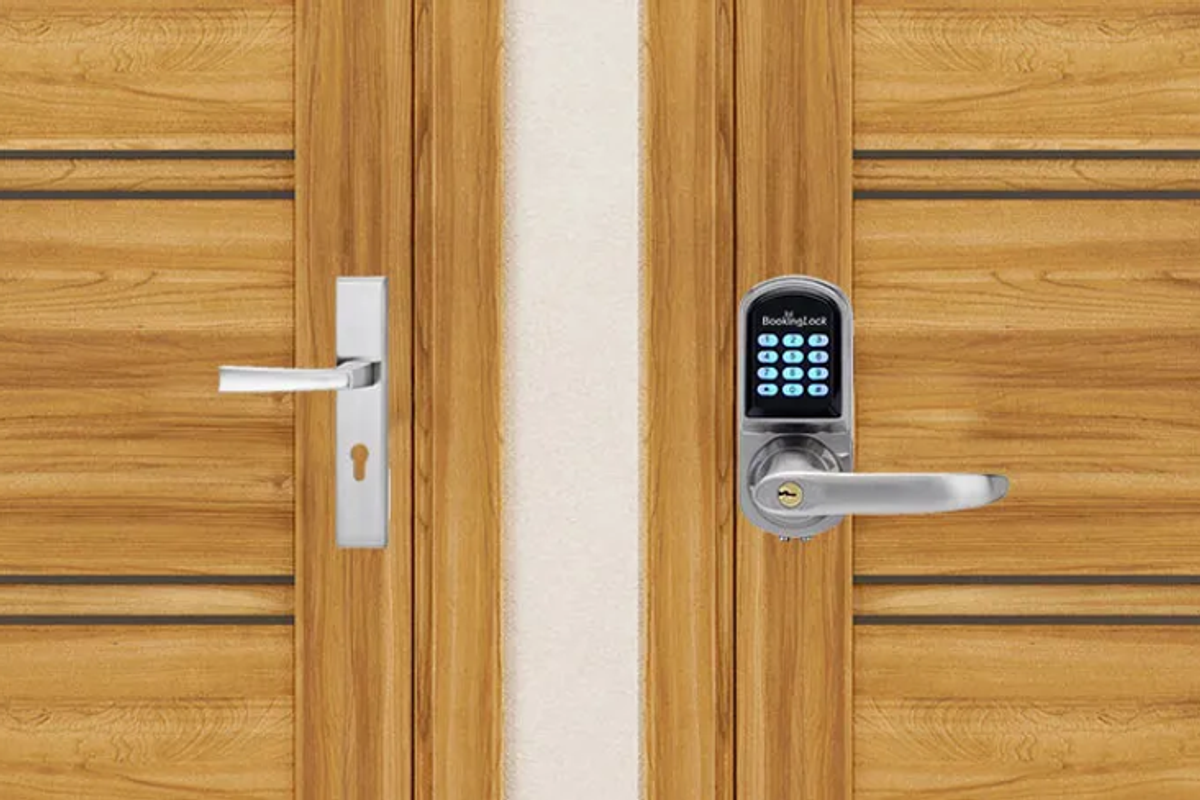
istock
Smart Locks vs. Traditional Locks: Which One Is Safer?
Explore the pros and cons of smart and traditional locks to determine the best option for securing your home and enhancing safety.

Explore the pros and cons of smart and traditional locks to determine the best option for securing your home and enhancing safety.
Home security is a top priority for homeowners and renters alike. With technological advancements, smart locks have emerged as an alternative to traditional locks, offering features such as remote access, biometric entry, and smartphone integration. But does innovation necessarily mean better security? This article explores the pros and cons of smart locks and traditional locks to determine which option is truly safer.
Traditional locks, also known as mechanical locks, have been the most common type of home security for thousands of years. These locks work with a physical key and come in different types, including deadbolts, padlocks, and mortise locks.

Smart locks use electronic systems to secure doors. They often integrate with mobile apps, Wi-Fi, or Bluetooth for remote access. The locks can be unlocked through keypads, biometric scans, or voice commands.

Both smart and traditional locks have their own security risks and benefits. Traditional locks are dependable and immune to cyberattacks but can be physically compromised. Smart locks offer advanced features like remote control and activity logs, yet they are susceptible to hacking.
One must consider how to manage access and security measures. For instance, homeowners who use smart locks should use strong passwords and two-factor authentication and continually update their software. Traditional lock users should use high-security deadbolts and never have easily duplicated keys.
Additionally, security awareness extends beyond physical locks. As homeowners increasingly rely on using social media as a search tool, it’s crucial to be cautious about sharing personal details, such as vacation plans or daily routines, which could make homes vulnerable to break-ins.
While choosing between smart and traditional locks is vital, a truly secure home goes beyond this. Installing security cameras, motion detectors, alarm systems, and smart doorbells would make break-ins highly unlikely. Smart security systems allow homeowners to monitor their property in real-time, receive alerts on suspicious activity, and even talk to visitors from a distance.
Another measure is to strengthen entry points by installing better doors, shatterproof windows, and bright outside lighting. In addition, homeowners must also consider cybersecurity measures when using smart locks: secure Wi-Fi networks, strong passwords, and software updates.
By combining advanced security technology with physical deterrents and safe habits, you can create a comprehensive security strategy that goes well beyond the locks themselves. Whether you get a smart lock, a traditional lock, or both, an integrated approach can ensure greater peace of mind and well-protected homes.
Rather than choosing one over the other, many security experts recommend a hybrid approach—combining traditional locks with smart security features. For instance, using a high-quality deadbolt alongside a smart lock allows for both physical and digital security. Adding security cameras, motion sensors, and alarm systems further enhances protection.
Ultimately, the best choice depends on your lifestyle, budget, and security concerns. If you prioritize convenience and remote access, smart locks may be ideal. Traditional locks remain a solid choice if you value reliability and minimal tech risks. Either way, reinforcing home security with multiple layers of protection is the smartest move.
Would you consider upgrading to a smart lock, or do you prefer the reliability of a traditional lock? Share your thoughts!
Remember to use GearBrain, our smart home compatibility find engine. It can help you find, buy, and connect any smart device and find compatible products that work with your existing smart-connected devices, such as Google Assistant, Apple HomeKit, Samsung Smarthings, and Amazon Alexa-enabled devices.
GearBrain Compatibility Find Engine
A pioneering recommendation platform where you can research,
discover, buy, and learn how to connect and optimize smart devices.
Join our community! Ask and answer questions about smart devices and save yours in My Gear.
